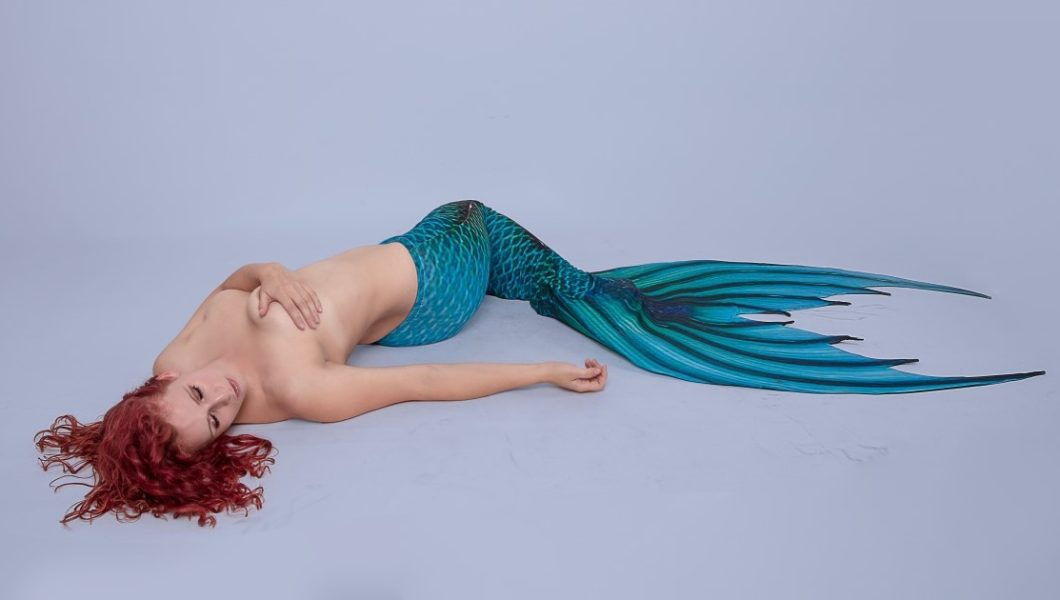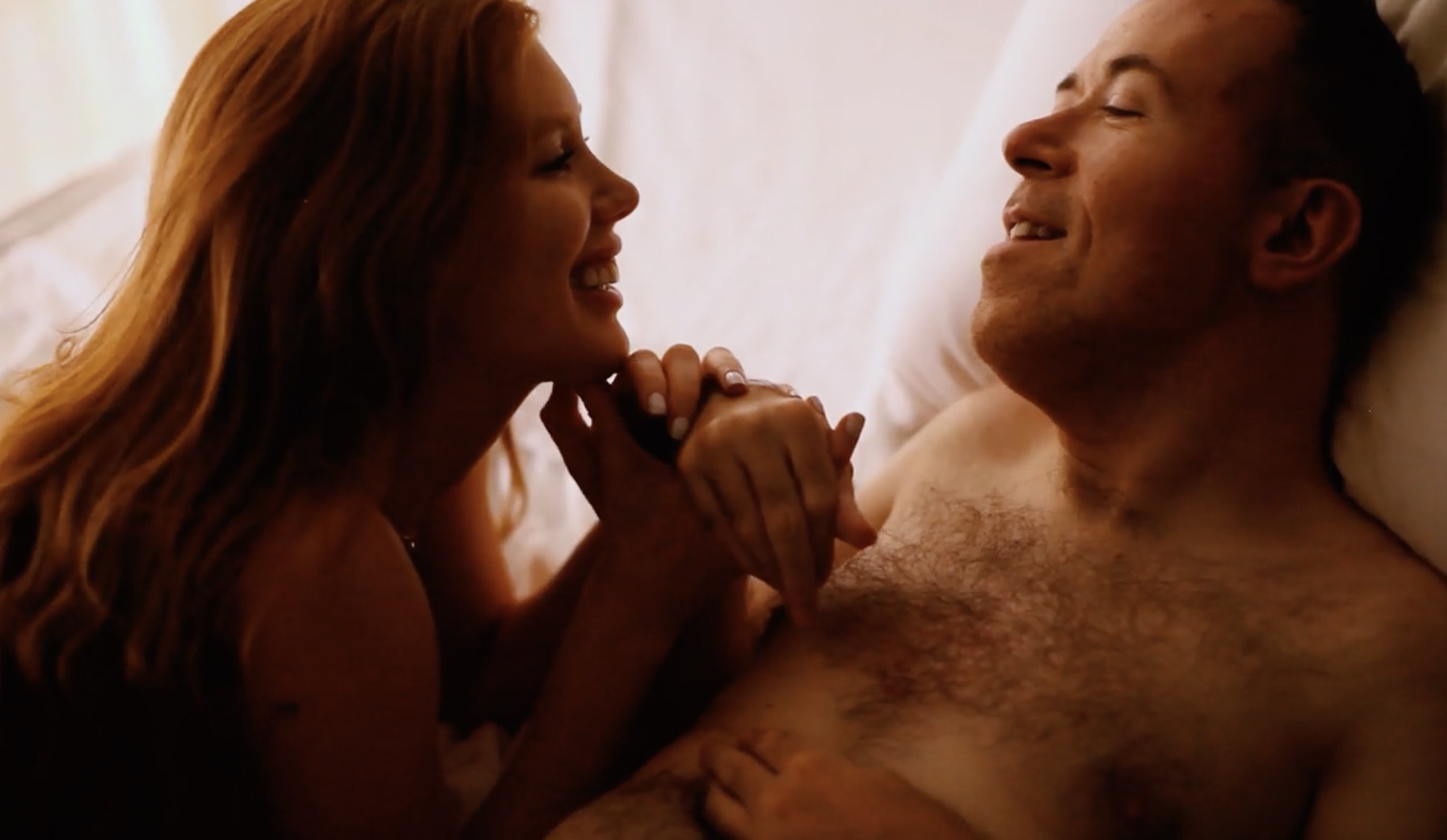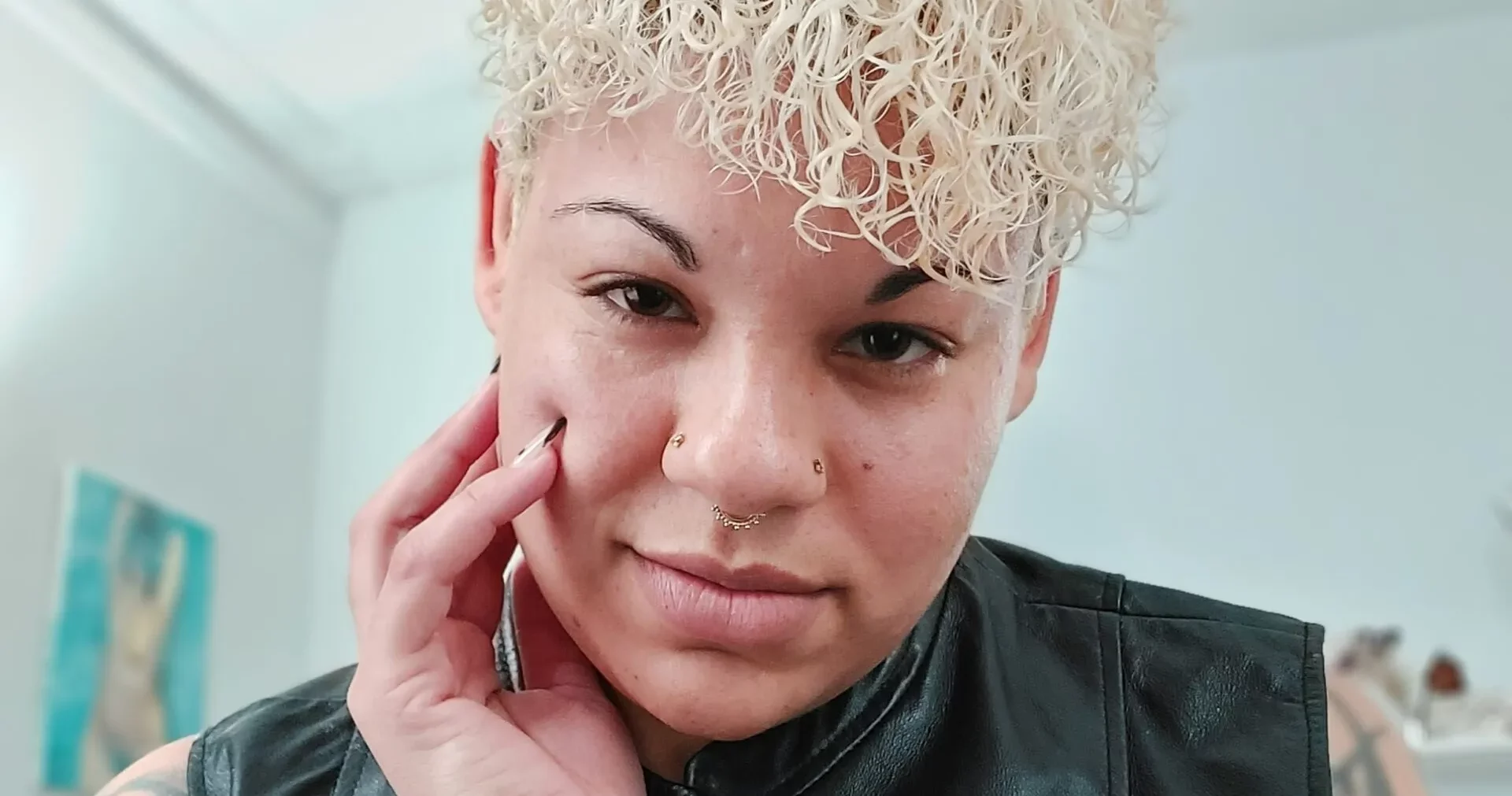Maria Cyndi, a paraplegic woman fed up with the poor sexual representation of disabled women, launched her blog Paraplegic Passion in July 2023.
After 52 years of being silent and feeling largely disregarded, she’s opening up about how she has learned to access pleasure and develop a relationship with herself. Based in the UK, she’s married with two adult kids and identifies as a #MeTooSurvivor.
To maintain her privacy, Maria Cyndi doesn’t blog under her surname or share photos of herself. Yet she says she feels like a mermaid when covering paraplegic passion.
“They are beautiful, often portrayed as topless, sexy, sensual, seductive and feminine,” she says. “The fishtail relates to my feelings about my legs. Being in water can often give people with paraplegia freedom and mobility.”
We interviewed Maria Cyndi about her experience as a paraplegic woman in sex, love, and life. She delves into disrupting stereotypes about sexuality and disability, and what motivates her to blog.
On launching Paraplegic Passion
“I’m going through perimenopause and my own evolution as a disabled woman. My relationship is deepening and since my children moved to university, my husband and I have rediscovered each other, in a meaningful way, which has been like a second honeymoon with wisdom.
“This is personal to me and my journey through life as a disabled female who has experienced many things that have been traumatic and excluded me from intimacy and romantic relationships, because of misconceptions about disability.
“I want to address everything to do with being paraplegic and passionate in a general, generic way, including TV, film, opinions, prejudice, discrimination, and lack of access in several areas of sexual experience.
“I want to remind healthcare providers that disabled people need dignity, respect, privacy, information and access to contraception, equal maternity care and menopausal support, without discrimination or assumptions.
“My blog posts so far have been quite difficult and probably feel negative, but I think it’s important to highlight the barriers first, in order to explain why it’s so important to me that disabled people are included in the conversation about pleasure. It’s not enough for us to just be alive. We need to live.
“Human interaction with disabled people is not just about maintenance and management of their ‘special needs.’ It’s about understanding that no matter what our disability is, or the individual experience of being disabled on a day-to-day basis, we are people first and have people needs, which are not ‘special!’ My future posts will be more focused on the good stuff!”
On being a #MeTooSurvivor
“The dangers of assuming that disabled people are not sexual means that we don’t always get adequate education in this area. We find it harder to access pleasure in sex toys that work for us. If we’re segregated from non-disabled people, it’s very very difficult for us to form relationships, and the assumption that we are not sexual can lead us to being violated.
“I was molested and raped as a child by a known paedophile for eight years. Even when I told a trusted adult as a seven-year-old, nothing was done. When I disclosed the whole thing as an eighteen-year-old, the response was really around the assumption that I was safe because my disability would put him off.
“That’s obviously a lack of understanding of the mind of a paedophile, but also says a lot about how disabled people are viewed as ugly and unsexual.
“There needs to be better understanding of exactly what this kind of violence actually does to people and less pressure on the survivors to forgive and forget. Forgiveness is a personal thing that has no bearing on healing and for the record, no victim or survivor ever forgets.”
Advice for paraplegic women embracing a healthy and happy sex life
“I appreciate that there are so many, many barriers that get in the way, but if possible, try to block out the noise of the ableist world. You are not responsible for other people’s opinions of you. As a paraplegic woman, you will have enough challenges to navigate, without being distracted by bigoted people.
“In my personal opinion and experience, pleasure comes from the brain. This is both an advantage and a hindrance. If we allow the negative narrative of bigoted ableist people to dictate our experience of life, we are handing over the ownership of our bodies and experience of pleasure.
“A very wise friend once told me, ‘Don’t let anyone live in your head, rent-free!.’ She wasn’t talking about sex, but it is still relevant. If processing the sensory experience of pleasure comes from the brain and our minds are filled with negative nonsense about how we look when we’re naked or that we can’t do this, or won’t be able to feel that, then we’re going to sabotage our own experience of passionate pleasure.
“Be in the moment, and believe in your worthiness of love. We are just people. We’re not half-humans! We ARE beautiful! Body positivity is so very difficult for us in the disabled community. We are diagnosed with ‘defects’ and the stigma of the defect becomes our inner voice, which is then reinforced by ableism.”
On dating with a disability
“I met my husband at a party. We weren’t set up by friends, we simply just met, through mutual friends and hit it off. I don’t want to say I got lucky, because, in truth, I think we both did! It grieves me to hear stories about disabled people paying sex workers and sex therapists, or contacting devotees to lose their virginity and have a sex life. We are worthy of so much more than that.
“We met before the digital revolution and mobile phones, but I understand that there are apps and dating agencies specifically for disabled people. I’m personally not a fan of anything segregated, because I think we need to move away from the ‘special’ identifiers. Our needs are human, not special.
“I appreciate that some disabled people want to have a relationship with another disabled person, but not all do, and love and compatibility aren’t limited to people being similar. We’re all different! Dating agencies could perhaps do more to include everyone in society and normalise the normal.”
Related Read: What Is a Devotee in Disabilty?
On finding a vibrator
“I do have a bugbear: I have spent all of my adult life trying to find a vibrator that meets my needs as a paraplegic woman.
“I really had to go looking through the Internet for literally weeks to find out what I needed to know. It’s difficult enough for disabled people to access the world around us without making the purchase of sex toys something of a quest that would make Indiana Jones cry.
“While I’m on the subject of sex toys, I would give anything to have to opportunity to work with a manufacturer of these things and design something that could quite possibly help many of us in the disabled community.
“There are so many designs for non-disabled women that focus on the clitoris, but for me, that’s not entirely helpful, and I suspect that other paraplegic women are experiencing similar frustration.”
On enjoying sex and pleasure
“There’s a lot of things to consider and accommodate when we are naked, not least of all, bodily fluids. I have a very weak bladder and although some might think that going to the bathroom in the middle of the seductive process before foreplay, is a passion-killer, wetting the bed is way worse!
“I use pads. They are not too dissimilar to sanitary towels or Tena pads, and tons of non-disabled women use them, so don’t be shy. If you’re about to get intimate with your special someone, they will love you anyway, and if they don’t, believe me, you deserve better. We use a splash blanket, which isn’t a ‘special needs” thing.
“A safe lube is essential for all of us, but especially if you have paralysis in your lower body or are susceptible to UTIs, along with a multitude of toys and different cushions that may work for your particular needs”
On sex and aging with her husband
“When we were in our twenties, we were more flexible. Things are very different now. Between my back and his knees, sometimes, sharing a pot of tea is as intimate as we can get. If pain is an issue, then definitely take any necessary medication beforehand to ensure the best outcome of comfort. If your mind is full of thoughts about pain, it’s not going to be easy to let go and surrender to the moment.
“Although being face to face allows for a more intimate, loving exchange, for maximum pleasure and comfort for my back, I prefer to be on my stomach during sex. When I was younger, I could hold myself on all fours, but these days, my shoulders are arthritic and painful, so we use a wedge for me to lay on.
“Getting older brings changes and challenges to everyone, regardless of how able they were or weren’t. Lube, Viagra, pillows and cushions, incontinence splash sheets, or whatever else you need for comfort and peace of mind so you can relax and fully enjoy each other, should never, ever be an issue or cause for embarrassment. You’re having sex. Sex, for everyone, is messy. Sometimes, sex in the shower circumvents many of the issues of possible leakage, but remember that with pleasure comes leakage… and as an Instagram page rightly states, squirting isn’t pee!”
On the representation of disabled people
“For a while now, I’ve been feeling frustrated with the negative way that disabled people are portrayed on TV and that we’re not in films very often. When we are on TV, there’s usually some form of ‘triumph over adversity’ narrative that isn’t there with non-disabled storylines. We’re infantilised and censored.
“I want to see disabled people in passionate love stories without the moral of the plot being about disability itself. There’s a pressure on me as a disabled woman, to inspire people, which I don’t want. Why should I waste my time and limited energy on inspiring the very people who exclude me from society? Who’s inspiring me? I can’t pour from an empty cup.
“When I watch TV or a film, I want to be represented positively and wholly, not just as a token gesture. Lip service isn’t representation, it’s ticking boxes.”
*This interview has been edited for clarity and brevity.


